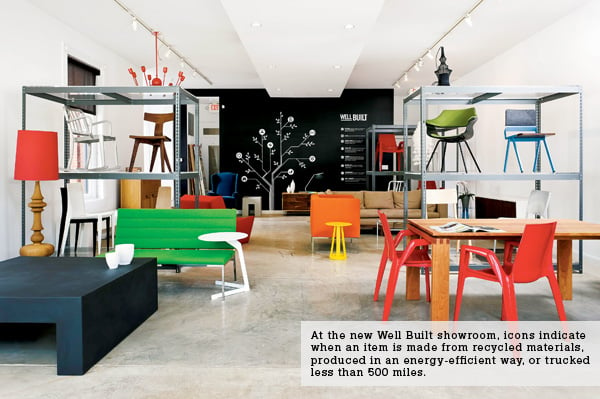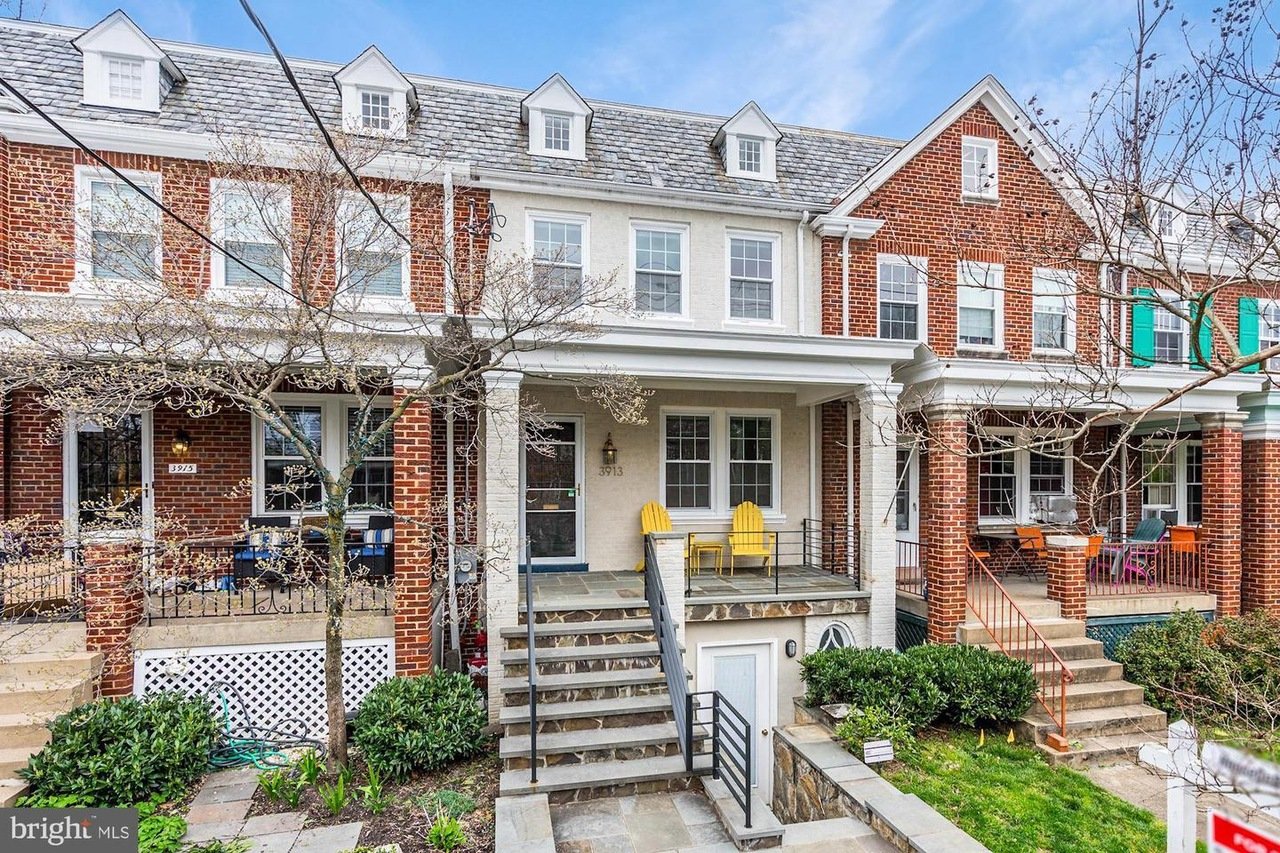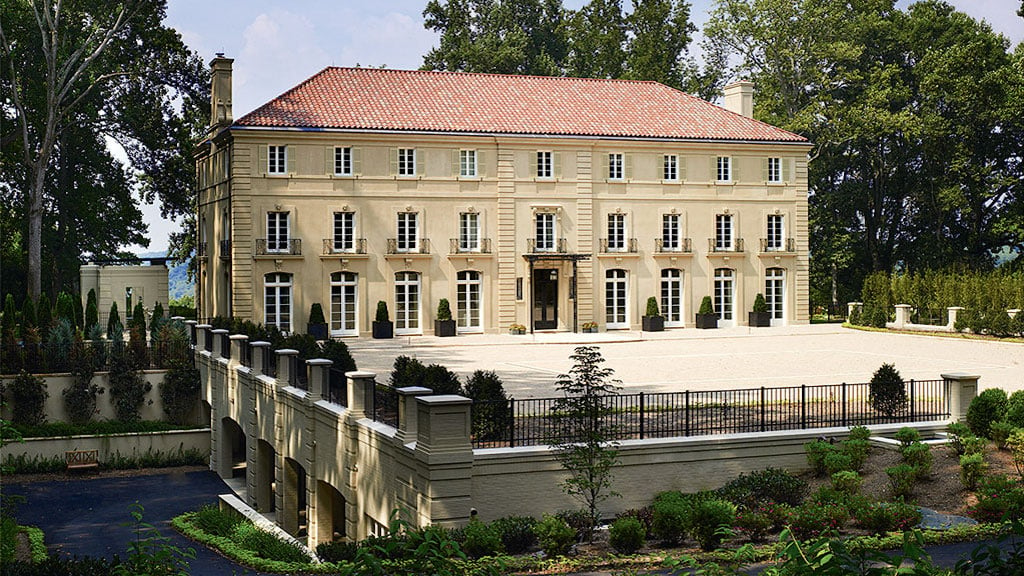With so many people going green these days, it’s gotten easier to find home furnishings labeled “sustainable.” But reading beyond the labels isn’t always easy.
“Just because you start out with an organic fiber doesn’t mean you have a sustainable fabric,” says Daryl Wakeley, owner of Bungalow Homewares Gallery in Alexandria. Those fibers could be treated with toxic dyes or durability-enhancing chemicals. The manufacturer may use energy inefficiently or dump waste into waterways. Glues may contain harmful formaldehyde, and finishes can “off-gas” volatile organic compounds into your home. The Environmental Protection Agency cites this form of indoor air pollution as one of the top five hazards to human health.
“The perfect eco-friendly product does not exist,” says Wakeley. “It’s always a matter of compromises.” A table made from bamboo, a renewable resource, may require the burning of fossil fuel to be shipped from China.
Finding the right sofa can be hard enough without sorting through such complicated calculations. The good news is that a growing number of organizations do some of that for you by certifying environmentally friendly products.
Susan Inglis, executive director of the Sustainable Furnishings Council, says to check for the Forest Stewardship Council (FSC) stamp on wood furniture. This is the gold standard for wood that’s from responsibly managed forests or legitimately reclaimed. Other materials may be certified by organizations such as the Global Organic Textile Standard. (For more certifying bodies, see page 144.)
Inglis says these agencies are necessary because some companies engage in “greenwashing,” the use of unfounded eco-friendly claims.
“Some of it is appalling,” she says, pointing to the use of “recyclable,” a misleading term: “Anything can be recycled if you put your mind to it.”
What matters is how much of a product is made from recycled material, particularly glass and metal because they take so much energy to produce. Some labels will indicate the percentage of recycled content as well as whether the piece is made from pre- or post-consumer waste. Pre-consumer waste is generated by the manufacturer—for example, scraps and other byproducts. “Post-consumer” refers to what happens to an item after a consumer is done with it.
Sometimes how furniture is manufactured makes a difference. Wakeley carries the G. Romano line in part because it’s made from sustainable materials, such as soy-based padding. The chairs and sofas also use sinuous spring systems rather than “hand-tied” springs because they’re longer-lasting and can be repaired without using new materials. Such details can add to the cost, but Wakeley says he tries to keep his prices moderate because customers “consider them a nice extra, but they’re not willing to pay a huge premium.”
The compromise Wakeley makes is in shipping, because G. Romano is a Canadian firm. It can take more fuel to truck goods across the country than to ship them from overseas. It’s always best to buy locally because of shorter shipping, but also because the United States has more-stringent environmental standards than some other countries, particularly in the developing world.
Another often overlooked element is how eco-friendly the retailer is. “Are they using efficient lighting and heating?” asks Inglis. Ikea, for instance, builds some of its US stores to meet LEED—Leadership in Energy and Environmental Design—standards and aims for the most environmentally sound packaging.
The Sustainable Furnishings Council can steer consumers to the greenest retailers in our area. There are plenty, but Wakeley admits that style selections can be limited. “The designers interested in these issues tend to be younger, so you get a more contemporary style,” he says. “It’s hard to find sustainable pieces in traditional styles.”
Wakeley has found a few exceptions, such as a Greenington bamboo table with a Frank Lloyd Wright look. Those with traditional tastes can also opt for the real thing—antiques are 100 percent recycled.
>> Next: 16 Stores for Green Furniture
16 Good Stores for Green Furniture
Bungalow Homewares Gallery. 1901-A Mount Vernon Ave., Alexandria; 703-299-8899. This shop specializes in eco-friendly furnishings for the smaller homes typical of its Del Ray neighborhood. Along with G. Romano upholstered furniture and other sustainable lines, the collection includes fabulous Loll Designs. The stylish pieces are made with 100 percent recycled plastic resin from things like milk jugs. The material is so durable that the tables and chairs can be used in playrooms or left outdoors year-round. A 36-inch square outdoor table costs $554, a “cricket” chair $230, and an Adirondack rocker $630; all are by Loll.
Crate and Barrel. Multiple area locations. One of the most popular lines at this chain is by designer Maria Yee, who handcrafts bamboo dining and bedroom pieces with ancient Chinese joinery, using no nails or screws. The Kyoto Kona sideboard ($1,799) is a standout with its elegant form and rich brown stain.
Design Within Reach. 3307 Cady’s Alley, NW, 202-339-9480; 1838 Columbia Rd., NW, 202-265-5640; 4828 St. Elmo Ave., Bethesda, 301-215-7200. This ultramodern purveyor carries the Emeco line, whose 111 Navy chair is made with 111 recycled Coke bottles ($230).
Flexa. Westfield Montgomery Mall, Bethesda; 301-469-1740. Founded 38 years ago in Denmark, this maker of children’s bedroom furniture has a long tradition of sustainable products and practices. Wood waste is used for fuel at the company’s facilities. Fun, colorful pieces include the Play Pouf chair in bright red, blue, or yellow ($99).
Hamiltons Sofa Gallery. Rockville, 301-881-3900; Vienna, 703-319-8000; Falls Church, 703-820-8000; Chantilly (showroom/clearance center), 703-766-8000. The huge selection ranges from traditional to contemporary. The Rowe collection is made with organic cotton, wood from replenished domestic forests, and plant-based cushion cores. Rowe sofas start at $859.
Homebody. 715 Eighth St., SE; 202-544-8445. This Capitol Hill shop carries a half dozen sustainable lines in sophisticated, modern styles. It also is the area’s exclusive seller of Roscoe Jackson, which mixes recycled plastics with responsibly harvested wood that can go über-contemporary or rustically transitional. Check out the whimsical Asterisk stools starting at $325.
Ikea. 10100 Baltimore Ave., College Park, 301-345-6552; 2901 Potomac Mills Cir., Woodbridge, 703-494-4532. Ikea offers a number of sustainable products, and its line of pressed-wood furniture complies with Europe’s low-formaldehyde thresholds. The Norden birch tables get the most from every tree trunk by using the knotty boards that are usually scrapped. A Norden dining table sells for $279; a smaller version is $79.
Kala Studios. 154 Mountain Laurel Ct., Fredericksburg; 540-222-1542. All of award-winning designer Kaleo Kala’s pieces use FSC-certified woods and nontoxic glues and finishes, and they’re crafted with efficient energy use and waste-reducing practices. The stunning custom furniture mixes contemporary flair with classic lines. Prices run from about $500 for a child’s chair to $6,000 for a dining table.
Mitchell Gold & Bob Williams. 1526 14th St., NW (and area Bloomingdale’s stores); 202-332-3433. In addition to using sustainable materials, this contemporary-furniture maker uses recycled packaging and invests in eco-friendly machinery. The new Forrest collection uses reclaimed wood from shipping pallets. The Forrest entertainment console costs $1,995.
Muléh. 1831 14th St., NW; 202-667-3440. Muléh’s Asian-influenced collection combines rustic with contemporary to unique effect. Based on the traditional craftsmanship of Southeast Asian artisans, the furniture is made with rapidly renewable organic materials. A good selection of eco-friendly lighting includes silk “cocoon” and steel lamps for around $1,400.
Pottery Barn. Multiple area locations. This chain offers a wide selection of furnishings made from things such as cypress, seagrass, and jute. Low prices make being green easy: Natural-fiber area rugs start at $349.
Rckndy. 1515 U St., NW; 202-332-5639. A fun, colorful shop (the name is pronounced “rock candy”) carrying sustainable modern manufacturers such as Gus Modern, Blu Dot, and American Leather. Our favorite is Copeland’s Catalina line, a gorgeous walnut series with a queen platform bed for $1,980.
Room & Board. 1840 14th St., NW; 202-729-8300. The chain—whose influences range from Arts and Crafts to midcentury modern to contemporary—offers several green products, such as the Linear collection, which uses recycled steel and woods that are sustainably harvested in the United States. The pieces are also manufactured within 100 miles of the distribution point. The company reduces paper waste by printing a single annual catalog with vegetable-based ink on recycled paper. Each shop’s “green team” coordinates local projects such as cleanups, carpooling, and recycling.
Take Home a Park. 7059 Blair Rd., NW, Suite 102; 202-291-1650. A garden shop carrying, among other things, iron and aluminum outdoor furniture made with up to 95 percent recycled content. The lines include Fermob—creator of the original bistro chair—and Gloster, which has branched out from its traditional teak to more contemporary steel and woven vinyl. Fermob chairs start around $100, tables at $200.
Well Built. 1541 14th St., NW; 202-299-0597. This recently opened shop is dedicated to sustainable furniture. The pieces crafted by some ten mostly domestic designers are beautifully simple and modern. A system of eight icons designates whether a piece is made locally and/or with “smart wood,” recycled content, energy-efficient processes, and more. The strikingly elegant Misewell Eileen lamp is $775.
West Elm. Tysons Corner Center; 571-633-0227. This slightly lower-priced but flashier sibling of Pottery Barn (Williams-Sonoma owns both) carries green options such as the minimalist Terra bed, which uses FSC-certified wood, recycled aluminum, and water-based glues and stains. Some vases and other accessories are made with recycled glass or organic textiles. This fall, West Elm is lau
nching an office-furniture line in collaboration with the Pratt Design Incubator for Sustainable Innovation.
>> Next: Eco-Friendly Labels to Look For
Official Eco-Friendly Labels
Consumers in the market for truly green furnishings can look for stamps of approval from these certifying bodies. Many of the organizations were formed after the United Nations 1992 Conference on Environment and Development, which called for establishing environmental standards.
American Tree Farm System (ATFS). A nonprofit agency that certifies private, family-owned forests with thriving woodlands, clean water, and a healthy wildlife habitat.
Canadian Standards Association (CSA). Sets global standards for industries and governments aimed at enhancing health and environmental preservation.
Ecolabel. An eco-marketing system created by the European Union that promotes the production and consumption of goods with an environmentally friendly life cycle.
Forest Stewardship Council (FSC). Provides internationally recognized standard-setting and accreditation for businesses and communities to address issues such as illegal logging and deforestation.
GreenGuard Environmental Institute (GEI). A nonprofit that certifies building materials, interior furnishings, and other products that use safe, low-emission materials.
Life Cycle Assessment (LCA). An accreditation organization formed by the Environmental Protection Agency and other groups to evaluate and disclose the “cradle to grave” environmental effects of goods and services.
Oeko-Tex. An organization—made up of testing institutes from 14 countries—that analyzes and certifies eco-friendly textiles and limits the use of toxic chemicals.
Programme for the Endorsement of Forest Certification (PEFC). One of the world’s largest independent certification agents for ensuring that forest products are produced with high ecological, social, and ethical standards.
US Department of Agriculture Certified Organic. This program launched by the 1990 Organic Foods Production Act approves products that meet standards for organically produced goods.
Subscribe to Washingtonian
Follow Washingtonian on Twitter
More>> Open House Blog | Homes | Real Estate


















